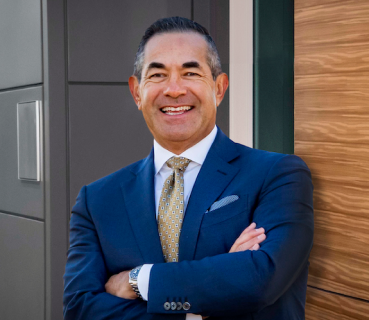Relevant Contents
Need Tailored Business Continuity Insights?
Contact Us Now for Personalized Guidance!
Many organizations start their business continuity programs with high hopes—and are brought low by insufficient staff, lack of knowledge, and the inability to execute. There’s an alternative to being vulnerable to every passing threat: hiring a consulting firm to create, implement, or maintain your program through a BC program augmentation service.
[Related: Client’s Guide to Hiring a BC Consultant]
When BC Programs Get Stuck in the Mud
Do any of these scenarios sound familiar? Your company has decided it needs to become more resilient but has no idea where to begin. You hit the ground running with your new BC program then get bogged down when doing your BIAs. A lack of maintenance leads your once-functional program to fall apart. A regulator wants you to close gaps which you lack the resources to address. Or a key client requires proof of resilience that you simply can’t provide.
Maybe you’ve encountered one or two of these situations as a BC practitioner. As someone who’s been a BC consultant for 25 years, I’ve seen them all. In fact, experience suggests that the situation of BC programs getting stuck in the mud can be considered the rule rather than the exception.
Why Solid Execution Is So Difficult
The reason for these issues isn’t hard to find: doing BC is hard. The individual components aren’t difficult, necessarily, but it’s rare to find a person or team that has all the qualities required: knowledge of BC methodology, expertise in IT disaster recovery, exceptional people and presentation skills, the ability to execute, and high dependability and follow-through.
A common consequence of the scenarios described above is that the organizations end up assuming just about the worst BC position you can have: entrusting the fate of the company and its stakeholders to luck.
Fortunately, there’s a better alternative, one that’s more cost-effective than you might think—and which delivers the benefit of improved resilience for the organization and increased peace of mind for its leaders.
The Smart Solution: Program Augmentation
The alternative I’m talking about is program augmentation, a service offered by many BC consulting firms, including MHA.
Program augmentation is where experienced BC consultants augment a company’s BC staff, taking on specific activities at their request. This could be conducting a current state assessment, doing BIAs, facilitating exercises, or all of the above (and everything else relating to BC, IT/DR, program management, and crisis management).
For organizations without a business continuity team, consultants can even function as their BC office, handling every aspect of resilience enhancement, from program development to quarterly training.
Companies’ use of outside experts to create, assist with, and/or run their BC programs is a growing trend, following the pattern in other areas such as payroll and accounting.
Many companies find that it is advantageous to focus on their core competencies, leaving other activities to specialist firms. When it comes to BC, this commonly leads to better results at reduced expense.
The best BC consultancies are staffed by people with broad and deep experience in the field, enabling them to efficiently implement solutions that others might struggle to obtain.
Inside MHA’s Program Augmentation Service
From here on, I’ll talk about the program augmentation service I know best: MHA’s.
Every organization’s BC needs are different. At MHA, we have the capability and flexibility to help you how and where you need it. For some clients, we act as their BC SWAT team, coming in on short notice to swiftly address urgent issues. For others, we serve as an ongoing partner, providing consistent support that helps keep their program current, compliant, and effective. We can build programs from scratch, put out spot fires, or handle the month-to-month chores essential for keeping a program up to date. We tailor our involvement to match your goals, staff capacity, and budget.
Whatever challenge you call us in to handle, you can be fairly confident we’ve already been there and done that. MHA has been doing BC for 25 years. To date we’ve helped more than 250 companies and implemented over 5,000 continuity and recovery plans, working with organizations of all sizes and across every major sector—banking, healthcare, manufacturing, higher education, aerospace, and more. This experience often translates to better and faster outcomes for your organization than you are likely to get using less seasoned BC practitioners.
Proven Experts, Ready to Execute
Speaking of seasoned practitioners, the individual members of our team are second to none when it comes to breadth and depth of relevant experience. Our senior advisory consultants have held top roles in business continuity, IT/disaster recovery, and crisis management at some of the highest-performing organizations in the country.
Our senior consultants also bring broad, cross-disciplinary expertise—an invaluable asset for addressing complex issues that span multiple functions. Above all, MHA consultants know how to execute. They don’t just know about BC—they know how to do BC. They have the technical, organizational, people, and presentation skills needed to overcome inertia, get through roadblocks, and help you reach your goals and protect your company.
The Tech Advantage: BCMMetrics
A key element that enhances the value of MHA’s Program Augmentation service is our proprietary BCMMetrics platform. Developed by MHA and available through our sister company, BCMMetrics provides our consultants—and clients—with a practical, cloud-based system for organizing program data, managing compliance, and tracking progress over time.
The platform includes four modules that offer end-to-end support for business continuity management (BCM).
Compliance Confidence helps organizations assess their BC program against leading standards such as ISO 22301 and NFPA 1600. BIA On-Demand provides a structured workflow for conducting business impact analyses efficiently and consistently. BCM Planner serves as a centralized environment for drafting, editing, managing, and exercising recovery plans. And BCM One, our map-based module, allows organizations to visually manage their facilities and access the recovery plans and contacts associated with each site.
Together, these tools enhance our ability to deliver program augmentation services efficiently and effectively—helping our consultants work faster, provide clearer insights, and leave your organization with a program that’s structured, measurable, and easy to sustain.
A Smarter Path to Resilience
Business continuity programs often start strong but lose momentum when faced with real-world challenges—resource constraints, shifting priorities, or a lack of execution skills. Program augmentation offers a practical solution: a flexible, expert-driven approach that strengthens your program without overloading your internal team.
At MHA, we’ve spent decades helping organizations of all sizes recover stalled programs, meet regulatory demands, and build lasting resilience. Whether you need quick-hit support or a long-term partner, our team—and our platform—are ready to step in and get the job done right.
Further Reading
- A Little Help: How to Select a BCM Consultant
- Client’s Guide to Hiring a BC Consultant
- Getting the Most Out of Your BCM Consultant: Do’s and Don’ts
- Critical Assistance: How a Consultant Can Strengthen Your Crisis Management Program
- Tools of the Trade: Finding the Right Software to Manage Your BCM Program

Michael Herrera
Michael Herrera is the Chief Executive Officer (CEO) of MHA. In his role, Michael provides global leadership to the entire set of industry practices and horizontal capabilities within MHA. Under his leadership, MHA has become a leading provider of Business Continuity and Disaster Recovery services to organizations on a global level. He is also the founder of BCMMETRICS, a leading cloud based tool designed to assess business continuity compliance and residual risk. Michael is a well-known and sought after speaker on Business Continuity issues at local and national contingency planner chapter meetings and conferences. Prior to founding MHA, he was a Regional VP for Bank of America, where he was responsible for Business Continuity across the southwest region.


